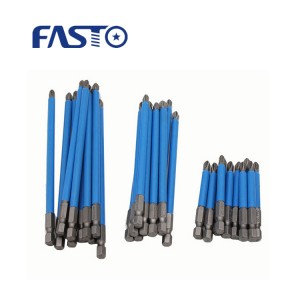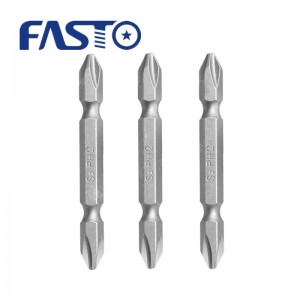When it comes to DIY projects or professional construction work, having the right tools is crucial. One of the most important tools in any tool kit is a screwdriver, and choosing the right screwdriver bit can have a big impact on the success of your project. With so many options to choose from, it can be overwhelming to know which screwdriver bit is best for your needs. In this guide, we’ll explore the different types ofscrewdriver bits and provide tips for choosing the right bit for your next project.
1.Types of screwdriver bits:
There are several types of screwdriver bits, each designed for a specific type of screw and application. The most common types include Phillips, flat, Torx, and hex bits. Phillips drill bits are designed for cross-head screws, which have cross-shaped indentations on their heads. Flat-head drill bits, on the other hand, are designed for screws with a single slot in the head. Torx bits are used for star screws and hex bits are used forhex screws.
2.Choose the right screwdriver bit:
When choosing a screwdriver bit, there are several factors to consider. The first is the type of screw you will be using. If you’re not sure, it’s a good idea to check the screw head and choose a drill bit that matches its shape and size. Using the wrong drill bit can result in dislodged screws, broken drill bits, and frustration.
Another important factor to consider is the material of the screwdriver bit. Drill bits are available in a variety of materials, including steel, titanium, and carbide. Steel drill bits are the most common and suitable for general use. Titanium-coated drill bits offer increased durability and corrosion resistance, making them ideal for heavy-duty applications. Carbide drill bits are the most durable and are designed for use with high-torque impact drivers.
3.Here are some tips for maintaining your screwdriver bits:
1). Keep the drill bit clean and free of debris to prevent slipping and damaging the screw head.
2). Store drill bits in a dry, safe place to prevent rust and corrosion.
3). Regularly inspect drill bits for signs of wear or damage and replace as necessary.
4). Use a drill bit appropriate for the job to prevent screws from falling out and damaging the drill bit.
We have a wide variety of fasteners, please feel free to inquire,Contact us
Our Website: /
Post time: Feb-23-2024


